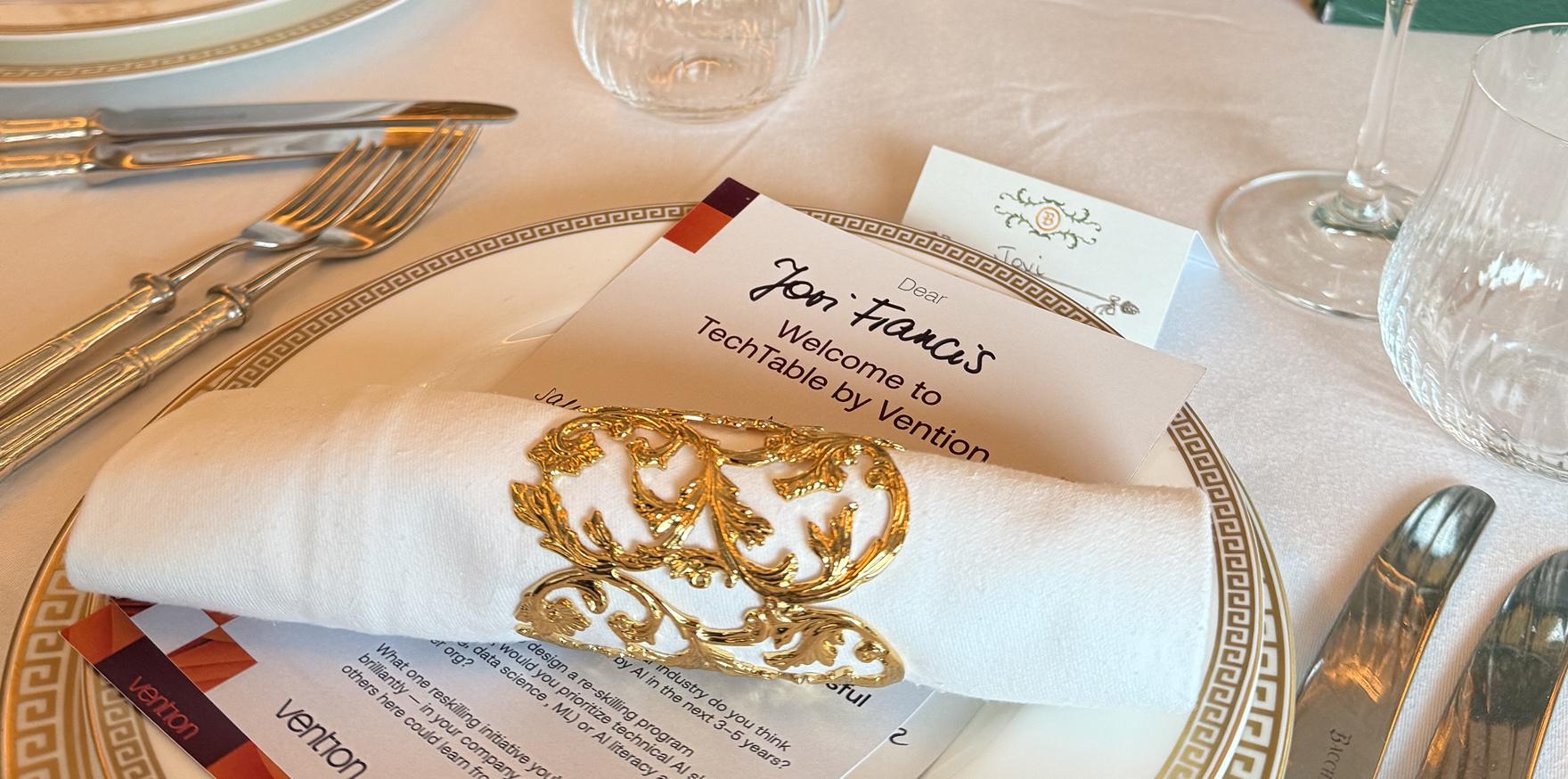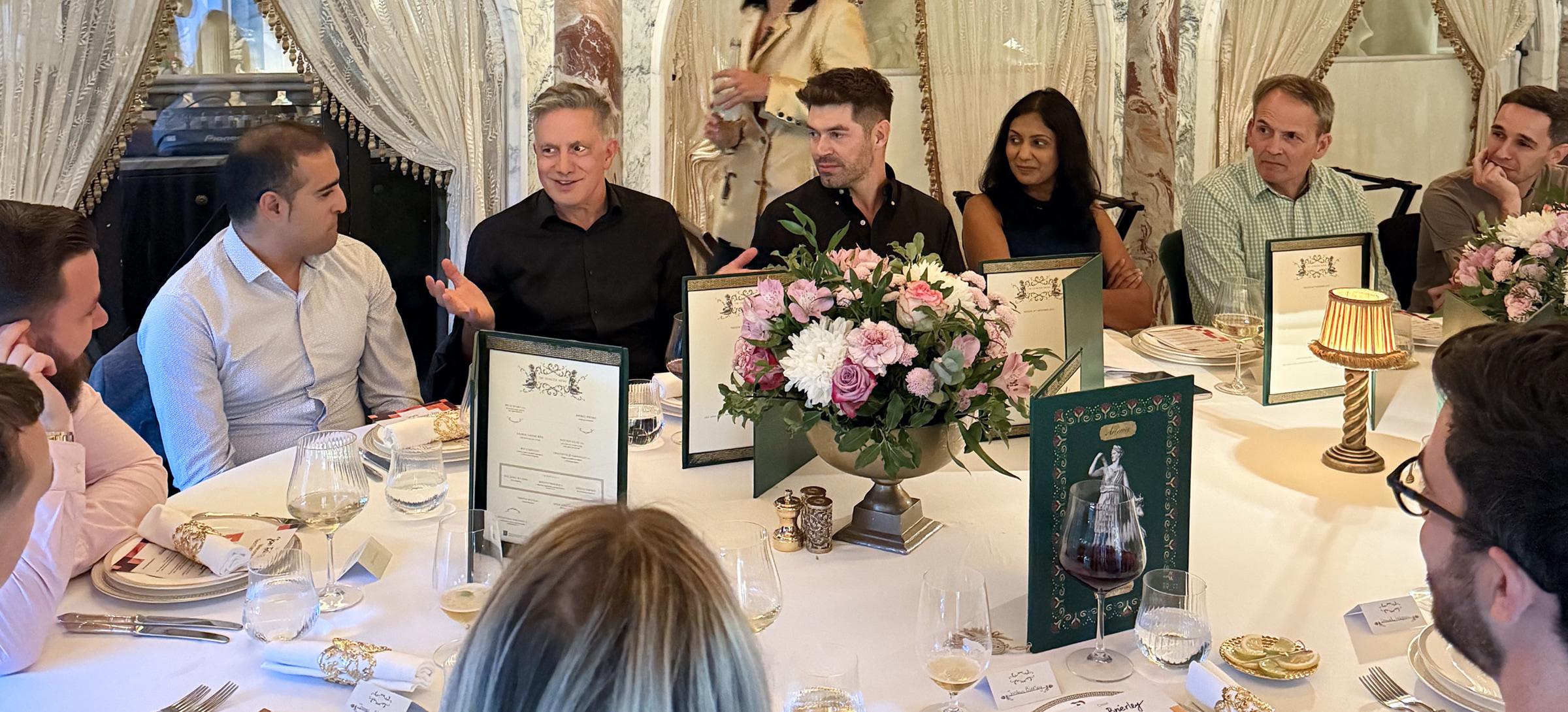
TechTable by Vention: Leading reskilling strategies in the AI era
Following a summer of accelerated AI breakthroughs (from OpenAI’s chip collaboration with Broadcom to $33.9B in generative AI investment and new tools like GPT-5 and DeepMind Genie 3), one thing became clear: progress waits for no one.
Our autumn TechTable picked up where that momentum left off. Hosted at one of London’s most memorable venues, this edition brought together industry leaders to tackle what is perhaps the most critical challenge in AI adoption: how do we reskill ourselves and our teams to stay ahead in an AI-driven future?
This time, TechTable invitees gathered at the Greco-Roman Bacchanalia in Mayfair to discuss insights that would serve startups and enterprises alike. Guided by Glyn Roberts, UK CTO at Vention, the evening enjoyed the presence of guest speaker Priyanka Sogani, Director of Engineering at Zepz, the company behind global payment brands WorldRemit and Sendwave.

AI reskilling: a must across all sectors
The impact of AI is widespread, forcing workers in every industry to adapt without bounds to its many use cases. In fact, up to 80% of the engineering workforce must reskill by 2027 due to Generative AI, according to Gartner. Recent UK government actions have affirmed these forecasts: the technology secretary, Peter Kyle, shed light on a government-led push to train 20% of the entire UK workforce (7.5 million workers) in AI by 2030.
Our TechTable guests agreed that this shift isn’t limited to engineering. Sales, marketing, legal, and operations teams all need support in learning how to adapt. Rather than replacing roles, AI is set to augment them. The conversation pointed to a growing awareness that learning to work with AI is now part of every job.
Need guidance on your AI adoption strategy?
Our AI experts can support every stage of your AI implementation plan.
Framing AI reskilling as strategic evolution, not ad hoc reaction
The guests were unanimous in how reskilling can also be encouraged informally. Vention’s Beat the CTO initiative drew special attention: in this internal competition, Glyn invited colleagues to build prototypes using no-code AI tools in under four hours. The goal was to make experimentation easy and accessible, sparking hands-on learning across departments.
Other guests shared their own approaches. Hackathons, peer-led learning, and appointing AI champions within departments were some of the ways companies are helping teams evolve in real time.
“AI reskilling isn’t about mastering new tools alone. It’s about reshaping how we work, think, and collaborate. Excellence may look different in an AI era, and we still need humans to own that change.”

Overlooking junior developers: a strategic mistake in the long term?
Remarkably, one of the dinner's highlights was a long debate about the nuances of hiring junior vs. senior engineers.
While many companies remain focused on hiring senior talent, some guests noted an untapped opportunity. New graduates who came through university during the generative AI boom are often more fluent with current tools and bring a fresh perspective.
Still, junior engineers, regardless of graduation year, require support, oversight, and time to grow. The consensus: hiring juniors who understand AI is a long-term bet that could pay off faster than many assume.
What comes next in AI reskilling
As the conversation wrapped at TechTable, attendees formed a consensus: reskilling for the AI era is not a one-off initiative, but an ongoing strategic journey. Companies that embed continuous learning, sharpen technical leadership, and empower teams to adapt as new AI tools become commonplace will lead, not follow.
Source: PR@ventionteams.com



